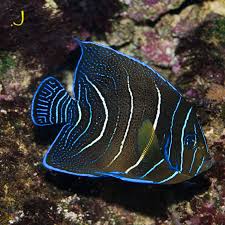Exploring the Influence of Dragons in Special Cultural Festivals of China

Dragons hold a sacred place in Chinese culture, embodying power, wisdom, and prosperity. Their imagery and symbolism are intricately woven into China’s vibrant cultural festivals, serving as a bridge between tradition and celebration. From grand parades to intricate performances, dragons bring life to these festivals, uniting communities and preserving ancient customs.
This article explores the profound influence of dragons in some of China’s most iconic cultural festivals, highlighting their significance, symbolism, and the unique ways they inspire celebration.
1. The Symbolic Power of Dragons in Chinese Culture
Dragons have been revered in Chinese mythology and folklore for thousands of years. Unlike their Western counterparts, Chinese dragons are seen as benevolent creatures symbolizing strength, good fortune, and control over natural elements.
1.1. Guardians of Prosperity
Dragons are believed to bring rain, essential for agriculture, and are considered protectors of the land and people. Their presence in festivals often signifies hopes for a prosperous year ahead.
1.2. Cultural Unification
Through their symbolism, dragons act as a unifying emblem, representing the shared values and heritage of Chinese communities.
2. Dragon Dance: A Festival Highlight
The dragon dance is a hallmark of Chinese cultural festivals, mesmerizing audiences with its dynamic movements and vibrant designs.
2.1. Origins of the Dragon Dance
The dragon dance dates back to the Han Dynasty, initially performed as a ritual to summon rain and drive away evil spirits. Over time, it became a festive performance representing strength and vitality.
2.2. Execution of the Dance
Performed by a team of skilled dancers, the dragon is animated through synchronized movements, symbolizing its soaring energy. The dance is often accompanied by traditional music, amplifying its grandeur.
3. Dragons in the Chinese New Year Festival
Chinese New Year, or the Spring Festival, is the most celebrated holiday in China. Dragons are central to its festivities, symbolizing the start of a prosperous new year.
3.1. Dragon Parades
Large-scale dragon parades featuring elaborate dragon puppets snake through streets, drawing crowds. These parades combine traditional craftsmanship with community participation, showcasing the collective spirit of the celebration.
3.2. Fireworks and Dragons
Dragons are often paired with fireworks during the New Year, symbolizing the expulsion of bad luck and the welcoming of fortune and happiness.
4. The Dragon Boat Festival: A Celebration on Water
The Dragon Boat Festival, or Duanwu Festival, is a prominent cultural event celebrating the legendary poet Qu Yuan. Dragons play a crucial role in its symbolism and activities.
4.1. Dragon Boat Racing
The centerpiece of the festival is the dragon boat race. Teams paddle long, ornately carved boats shaped like dragons, competing to the rhythm of beating drums. The race embodies teamwork, strength, and the spirit of community.
4.2. Offerings to the Dragon
Participants often make offerings to dragon spirits, seeking their blessings for safety and success during the races.
5. Dragons in the Lantern Festival
The Lantern Festival marks the end of Chinese New Year celebrations, and dragons feature prominently in its vibrant displays.
5.1. Dragon Lanterns
Giant dragon-shaped lanterns are a visual spectacle during the festival. Crafted from silk, bamboo, and paper, these lanterns are illuminated at night, creating a magical ambiance.
5.2. Dragon Processions
Dragon processions, accompanied by lion dances and traditional music, bring communities together in joyous celebration, emphasizing unity and good fortune.
6. Dragons in Regional Festivals
Beyond national celebrations, dragons are an integral part of regional festivals across China, reflecting local traditions and interpretations.
6.1. Fujian’s Fire Dragon Dance
In Fujian province, the fire dragon dance is a spectacular tradition where dragons made of straw and bamboo are lit with fireworks, creating a fiery display. This practice is believed to ward off misfortune and attract prosperity.
6.2. Guangxi’s Water Dragon Festival
In Guangxi, the water dragon festival features dragon dances performed on rivers. This unique celebration pays homage to the dragon as a water deity and guardian of the local community.
7. The Role of Dragons in Temple Fairs
Temple fairs, held during major festivals, often feature dragon-themed rituals and performances, blending religious practices with entertainment.
7.1. Dragon Offerings
Devotees offer incense and gifts to dragon deities at temple altars, seeking blessings for health, wealth, and happiness.
7.2. Folk Performances
Dragon dances and puppet shows are common attractions at temple fairs, preserving traditional art forms while engaging modern audiences.
8. Dragons in Modern Festival Celebrations
While rooted in tradition, the portrayal of dragons in festivals has evolved to incorporate contemporary elements, ensuring their relevance in modern times.
8.1. Innovations in Dragon Design
Modern dragon puppets feature advanced materials and LED lighting, enhancing their visual impact during nighttime festivals.
8.2. Globalization of Dragon Festivals
Chinese communities worldwide celebrate dragon-themed festivals, sharing this cultural heritage with global audiences and fostering cross-cultural understanding.
9. Cultural Significance of Dragons in Festivals
The enduring presence of dragons in Chinese festivals highlights their role as cultural icons, symbolizing the values and aspirations of Chinese society.
9.1. A Symbol of Resilience
Dragons represent the strength and resilience of the Chinese people, inspiring unity and pride during celebrations.
9.2. Preservation of Heritage
By incorporating dragons into festivals, Chinese communities ensure the preservation and transmission of their cultural heritage across generations.
10. Conclusion
Dragons are more than mythical creatures in Chinese culture—they are living symbols of its rich traditions and values. From the grandeur of dragon dances to the spirited dragon boat races, their influence permeates the most cherished cultural festivals, uniting communities in celebration and reflection.
As Chinese festivals continue to evolve, the role of dragons remains steadfast, bridging the gap between past and present. By exploring the influence of dragons in these celebrations, we gain a deeper appreciation for the profound cultural significance they hold and the enduring legacy they represent.


